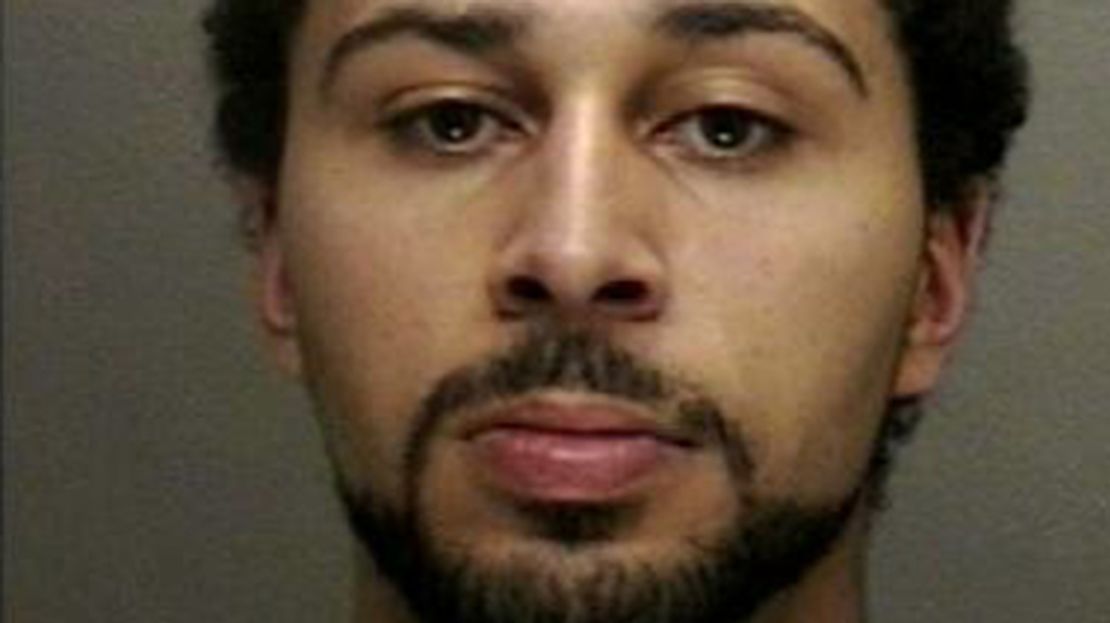Story highlights
"Upskirting" involves secretly recording or photographing another's intimate areas in public
Massachusetts' law stems from a 2010 arrest of a man taking photos up a woman's dress
The woman was an undercover police officer
But those charges were dropped because of wording in the law at the time
Four months after Massachusetts Gov. Deval Patrick signed a new law banning “upskirting,” police have made their first arrest.
Joshua Gonsalves, 23, was the first person in the state to be charged under the new law, according to Joe Pesaturo, spokesman for the Massachusetts Bay Transit Authority (MBTA).
MBTA police were called to the Forest Hills MBTA station in Jamaica Plain, a neighborhood of Boston, on Tuesday afternoon for a report of a man taking photos up a woman’s dress, according to MBTA police.
When police arrived they questioned the 26-year-old victim who told officers that while she was standing in the upper busway she felt “something” brush against her knees. When she looked down she saw a man’s hand “between her legs, holding an Apple iPad with the camera on facing up her skirt,” according to police.

The victim provided a detailed description of the suspect, including turning the table on the man by taking photos of him as he walked away, according to a statement from the Suffolk County district attorney’s office.
Police found Gonsalves on a bus shortly after and questioned him. He admitted to the deed, according to police, and stated to officers he had previously heard on the news it was not illegal to “take pictures up a girl’s skirt.”
Five months ago, Gonsalves would have been right.
Criminalizing “upskirting” stemmed from a case against Michael Robertson, 32, who was arrested in 2010 for allegedly taking photos up an undercover officer’s dress, according to court documents.
The charges against him were eventually dropped because Massachusetts’ highest court ruled that Robertson did not violate state law when he took photos up the skirt of a woman because she was not nude or partially nude, as stipulated by an old state law against secretive photography.
Intense media scrutiny followed and state lawmakers quickly called for a revision to the statute. They passed a bill making “upskirting” illegal and the governor signed it into law on March 7.
So what is “upskirting”? It is the “secret photographing, videotaping, or electronic surveillance of another person’s sexual or other intimate parts, whether under or around a person’s clothing or when a reasonable person would believe that the person’s intimate parts would not be visible to the public,” Patrick’s office said in a prepared statement in March.
Gonsalves pleaded not guilty on Wednesday to violating the “upskirting” law and ordered held on $150 bail. He was also ordered to stay away from MBTA property, including buses and trains.
If convicted, Gonsalves could face a sentence of 2½ to 5 years and up to a $5,000 fine.
After Wednesday’s court proceeding, Gonsalves’ attorney, Charles Pappas, spoke briefly to CNN affiliate WCVB.
“I believe in the police report it was quoted that he (Gonsalves) had either heard on the news or read online that this was not illegal, but … I haven’t really gotten into detail with him about that,” Pappas said.
CNN’s Dave Stewart, Haimy Assefa and Ray Sanchez contributed to this report.